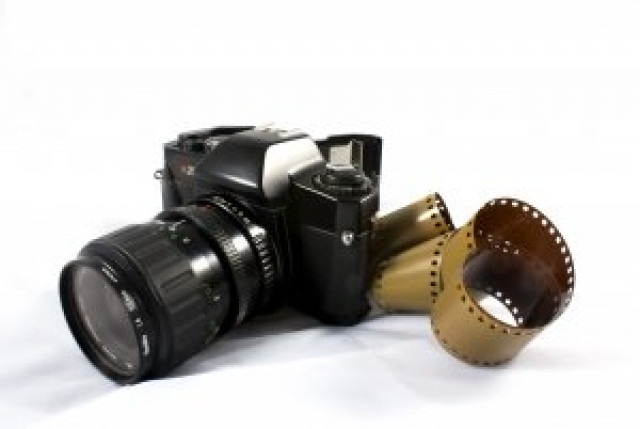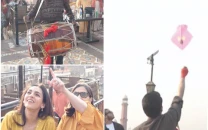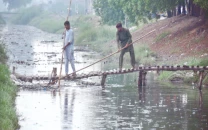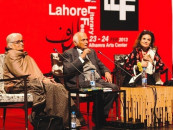Learning a universal language
Trainees were told to imagine their photos before they shot them.

The idea was to inculcate a professional understanding of the scope and role of photography in journalism. PHOTO: FILE
Not a single ‘real’ photojournalist has so far emerged in Pakistan, says Asim Rafiqui, trainer of the Lahore University of Management Sciences Photo Journalism Workshop 2013 that ended on Wednesday. “This is simply a tragedy” he says.
The workshop was organised by the LUMS initiative for Journalism and Media (IJM), launched recently for professional journalists. Photojournalist Asim Rafiqui trained nine people from various parts of the country.
The trainees said that they had learned new lighting techniques and how to incorporate shadows in their photographs.
Rafiqui, told The Express Tribune that the workshop had involved a few hours of lectures and discussions followed by a review of pictures by photographers whose work demonstrated the ideas he had noted. The trainees were then asked to find their subjects and take photographs. “The idea was to let them apply what they had learned,” he said. A review of the photographs would be held at the end of the day and the group would critique the pictures to understand what they had done right and where they had been wrong, he said.
“I focused on how to take control of the camera, make decisions instead of relying on automation, how to explore and understand the quality, direction, temperature and intensity of light and how to shoot portraits,” said Rafiqui.
Portraiture was selected as an assignment to allow the students maximum control over their assignments and give them freedom to explore the subject. They were told to focus on someone they knew or had met and to concentrate on elements like finding beautiful light, arrangement and designing a background for the portrait. The students were asked to think about the core elements of photography: light and geometry.
“I discourage students from bringing their cameras to the class so they can imagine their photographs before they shoot them,” said Rafiqui.
The idea was to inculcate a professional understanding of the scope and role of photography in journalism. “I try to push Pakistani photographers to understand that they work with a universal language and that they must push themselves to be amongst the best,” he said.
“South Asia, Bangladesh in particular, had some of the best photojournalists in the world. There is a strong commitment to the craft and its value to the society. Most of the Bangladeshi photographers engage socio-economic issues... being confrontational, dissenting, critical, and challenging. Their tradition is home grown,” said Rafiqui. Pakistani photojournalists lag too far behind. “I am, in my own small way, pushing an ambitious programme and vision for my students,” said Rafiqui.
Kiran Nazish, founding member of the IJM said, “Photojournalism is such a crucial field, sadly due to lack of employment opportunities, many talented reporters end up abandoning their passion.”
Rafiqui is one of the finest photojournalists in the country and perhaps the best trainer in the field, said Nazish. “We were thrilled to get more than 200 applications from FATA, KP, Kashmir, Karachi, Lahore and Islamabad,” she said.
Saad Sarfaraz Sheikh, a Lahore based photojournalist, said, “Rafiqui is an excellent photojournalist with immense experience. This has been an amazing learning experience.”
Manahyl Khan, a journalist from Karachi, said the workshop had helped her see the “hideousness in many photographs”.
She said, the trainer’s wit and criticism had brought out the best in the participants in a very short time. “We might not have aced it... but we have something we can take back to our work,” she said.
Intikhab, a photojournalist and trainer from Kohat, said he would teach the things he had learned to younger colleagues in KP.
Aurangzeb, a journalist from Azad Jammu Kashmir, said, “I have learned that lighting is the most important factor in photojournalism and if we have our basics right, our photographs will improve.”
Published in The Express Tribune, June 27th, 2013.



















COMMENTS
Comments are moderated and generally will be posted if they are on-topic and not abusive.
For more information, please see our Comments FAQ